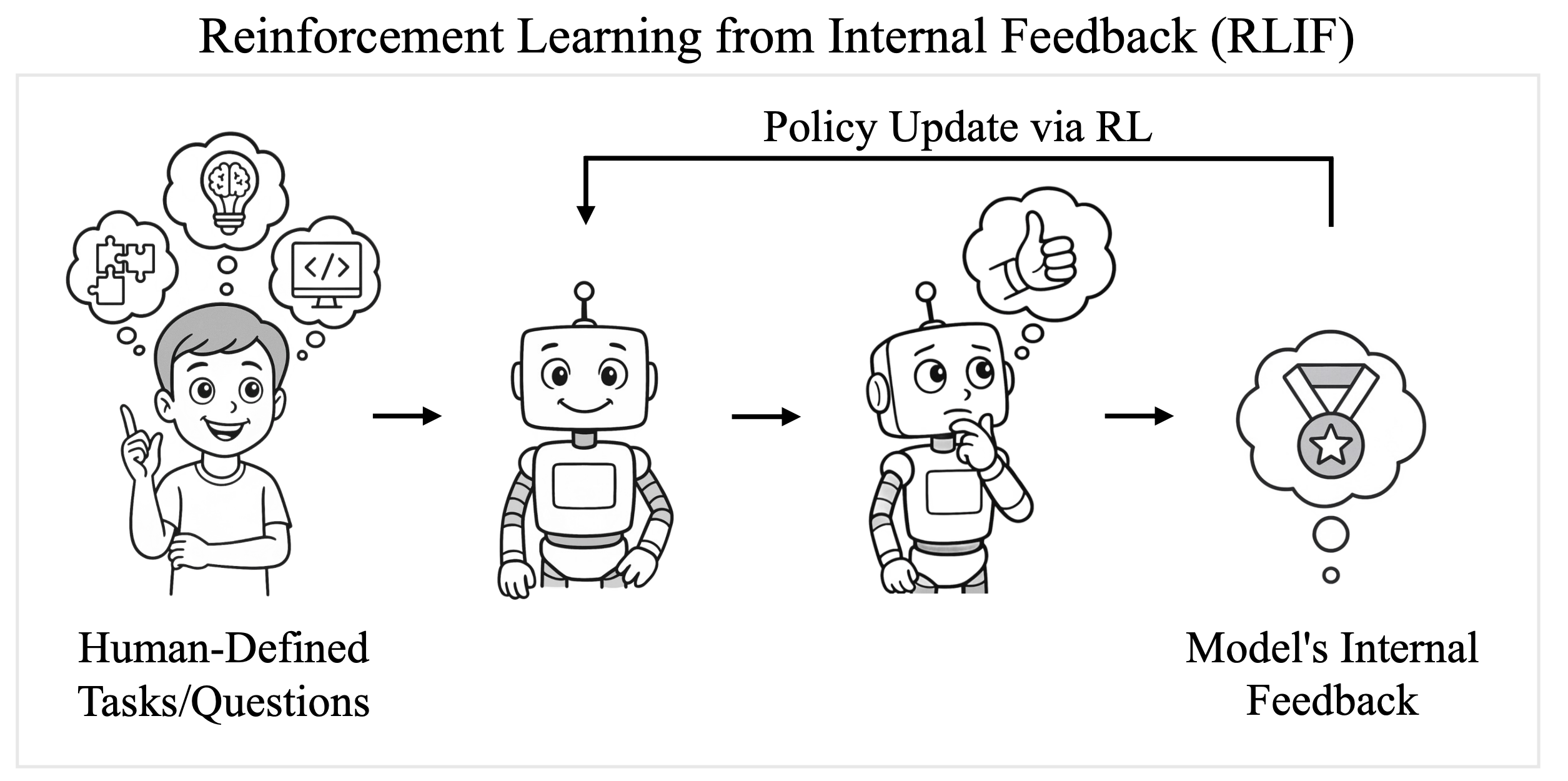Learning to Reason without External Rewards
My summary of Learning to Reason without External Rewards by Xuandong Zhao, Zhewei Kang, Aosong Feng, Sergey Levine, Dawn Song.
Another very interesting paper on the topic of reward modelling, that continues to turn assumptions on their head about how to train reasoning LLMs.
This paper proposes a new RL training method that doesn't rely on reward models (RLHF) like ChatGPT, selected high-quality ground truth examples (RLVR) like DeepSeek R1, or even verifiable generated data (Self-Play) like AbsoluteZero, to develop complex reasoning capability (thinking mode).

Turns out we can just use the model's internal sense of confidence as the reward signal to train a reasoning model 🤯
The authors take GRPO (from Deepseek R1) and replace the verifiable reward signal with a "self-certainty score" (specifically the KL divergence between the model's output distribution and a uniform distribution), then train on a collection of prompts relative to the evaluated domains. They demonstrate reasoning performance comparable to GRPO on math while exceeding it on coding tasks.
They introduce a new paradigm, "Reinforcement Learning from Internal Feedback" (RLIF) and call their approach INTUITOR.
If this approach scales, it could unlock the ability to generally improve reasoning LLMs in domains where high-quality ground truth isn't available or not verifiable (i.e., any domain other than math and code) and provide evidence that pre-trained LLMs "possess richer latent behavioural priors than previously recognised."

Interesting, indeed.